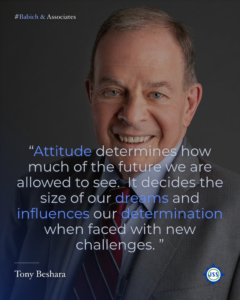Making a positive impression on the interviewer and avoid coming off as flaky is key. Being flaky can have negative consequences in various aspects of life, especially in job interviews.
Here are some reasons why being flaky is generally considered a negative trait:
-
Prepare in advance: Research the company and the position you’re applying for. This will show the interviewer that you are serious about the job and have done your homework.
-
Be punctual: Show up on time for the interview, or even a few minutes early. Being late is a sign of disrespect and can make you appear unreliable.
-
Dress appropriately: Dress professionally for the interview. This shows that you take the job seriously and are willing to make an effort.
-
Be confident: Confidence is key during an interview. Speak clearly and concisely, and be sure to answer the interviewer’s questions directly.
-
Be honest: Don’t exaggerate or lie about your skills or experience. This can backfire and make you appear flaky or untrustworthy.
-
Follow up: After the interview, send a thank-you note or email to the interviewer. This shows that you appreciate their time and are still interested in the job.
Below is a recent example of the effects of a flaky personality and the consequences on potential job prospects.
The Interview
Our candidate has a great track record of performance, some real stability and, on the surface looked like to be an excellent candidate. And, fortunately, we had a wonderful long-term client who had been looking for someone with her background about three months. We scheduled a telephone interview with the hiring authority first.
Strike One: Lack Punctuality
She agreed to the telephone interview for 8 AM last Wednesday morning. The hiring authority called her cell phone number and got her voicemail at 8 AM. He called back at 8:05 AM…voicemail again. He then called back at 8:10 AM and she picked up. She apologized and said that she was taking the call while she was taking her kids to school and that at 8 AM she was driving through a school zone and couldn’t answer the phone. Keep in mind she knew about this interview two days before it took place and she’s the one that suggested the 8 AM time. When she told the hiring authority that she was in a car, having dropped off her kids, he was disappointed that she didn’t make the interview a higher priority.
The telephone interview didn’t last very long and they agreed to a video interview the next morning at 10 AM. When the next morning came along, the hiring authority had sent a video invite and candidate could not get her computer to work right. She could hear the hiring authority but she could not see him. Later, she could see him for a minute or two and then the video kicked off. This certainly wasn’t a good way to get things going. They had the interview but she suggested that they redo the video interview the next day and she assured our client that she would have her technology fixed then.
Strike Two: Not Prepared
The next day rolled around and, good news her technology worked and a video interview began both with audio and visual. Five minutes into the interview, according to the hiring authority, her cat walked across her PC while she was interviewing. According to the hiring authority, she immediately picked the cat out, apologized, put the cat down on the floor and then the cat jumped on her lap. She asked to be excused for moment so she could put the cat outside the room and shut the door. Okay, then the cat started whining and scratching the door and even though they had the interview, it was about as distracting as it gets.
Strike Three: Unreliable
In spite of this, the initial interview went well. The hiring authority wasn’t pleased with all of the missteps but he was willing to give her the benefit of the doubt and suggested that she go to the next step in the interviewing process. They arranged a time two days later for her to do a video interview with the hiring authorities’ boss. They all agreed to the time, etc. The time came in the interviewing authority initiated the video interview…and waited…and waited…and waited. Our candidate didn’t dial in. Of course the hiring authority was a little embarrassed, but called us and wanted to know what happened. Of course we called our candidate and she said, “oh, didn’t they get my email? Today was a school holiday and my kids were off school and their home. I wrote them earlier this morning and told them I wouldn’t be able to make the video interview.”
Well, neither the hiring authority nor his boss got the email and they were expecting the video. By this time this whole process with our candidate was getting really old. We had been doing this for a week and a half and still hadn’t gotten any reasonable traction beyond an initial interview. In the meantime, we had come up with two other really good candidates. Well, they really weren’t quite as good as our first candidate, but she had created such flakiness that our client just decided to move on.
I don’t have a problem if a candidate doesn’t get an opportunity because they don’t interview well or they’re not as good as other candidates, but when they lose an opportunity because they’re flaky or, at least, act flaky, it’s a real shame. It’s hard to even imagine that a candidate would even consider doing a telephone interview while they were taking their kids to school.
What’s even more absurd about this is that, when the candidate found out they were no longer going to consider her, she was furious. She yelled at me that if they were going to eliminate her for those reasons, they didn’t deserve her. Really sad!
Overall, being flaky can have many negative consequences, which is why it’s important to demonstrate reliability and follow through on commitments. This is especially important during job interviews, where flakiness can make a poor impression on potential employers.
 As a recruiter, I understand that stories are a fundamental part of human communication. They have the power to connect us, teach us, and inspire us. That’s why, as a candidate, sharing your experiences through stories can be a valuable asset in a job interview. It not only provides insight into your past accomplishments but also demonstrates your unique personality and character.
As a recruiter, I understand that stories are a fundamental part of human communication. They have the power to connect us, teach us, and inspire us. That’s why, as a candidate, sharing your experiences through stories can be a valuable asset in a job interview. It not only provides insight into your past accomplishments but also demonstrates your unique personality and character.


